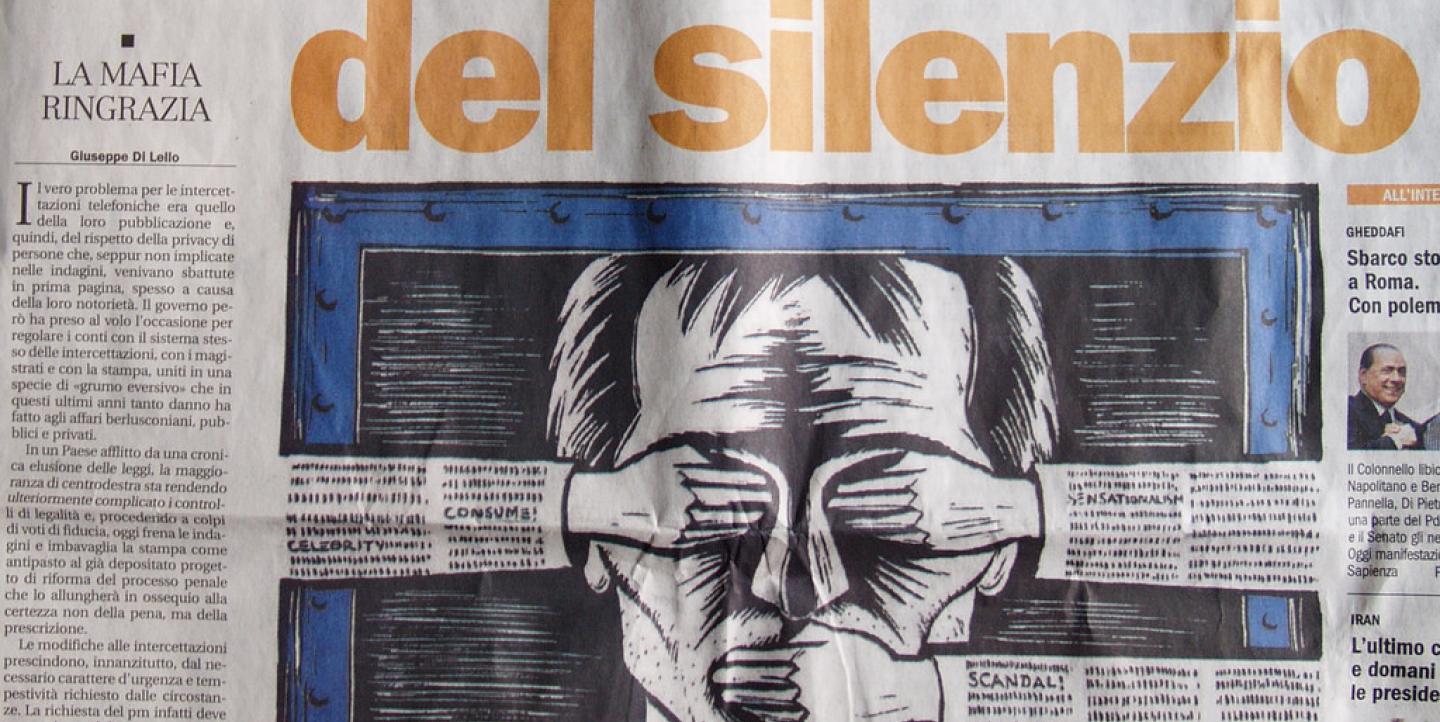As press freedom declines and the World Press Freedom Index map, created by Reporters Without Borders (RSF), grows darker, there are concerns that the overall environment for journalists will become more dangerous.
So what can be done to reverse the negative impacts of decreasing press freedom? Two case studies highlight trends in Ecuador and Canada that can improve this darkening situation.
According to RSF’s measures of press freedom, these two countries show signs of improvement through regime change and legislative reform, with Ecuador rising 13 spots and Canada rising four spots on the index. Despite the flaws, these trends can be a blueprint for other governments.
Ecuador and Canada offer two solutions to improve press freedom that could be applied to other contexts.
Ecuador: leadership change and decreased tensions
Ecuador saw the highest increase in the Western Hemisphere due to the election of President Lenin Moreno, who has “diffused tension between the government and privately owned media,” according to the index. Journalists who previously self-censored in fear of the country’s defamation law are now hopeful.
Ecuadorian investigative journalist Daniela Aguilar de la Torre discussed what it means to have Moreno as president.
“Recently, there has been more of a movement toward freedom of the press,” Aguilar said. “But there is still an anti-press freedom law. It is difficult to report on public officials, especially in small cities, where the same censorship that existed in the Correa regime is still maintained.”
Under President Rafael Correa, journalists faced 10 years of targeted attacks with the aid of the communications law. Correa sued journalists and media outlets and would verbally attack newspapers on his live TV show every Saturday. These lawsuits created financial strain on outlets that turned to self-censorship as a way to stop future claims.
“It is a more conciliatory attitude [today], but journalists ask for the elimination of the law created to censor the press, or at least to reform [it],” Aguilar said.
With Moreno in power, journalists are calling for him to replace these laws instead of reforming them and will only be proud of their administration if they see legislative change, she said. Still, public statements are steps to a healthy journalism environment. Journalists in Ecuador are no longer as verbally insulted and “can focus on making better journalism instead of thinking about defending themselves,” said Aguilar.
RSF North American Executive Director Margaux Ewen echoed her sentiment.
“Public statements do have an impact, whether they be positive or negative,” Ewen said.
When Ecuadorian journalists were kidnapped and killed on the country’s border in April, President Moreno confirmed the deaths and offered a US$100,000 reward for information relating to the kidnappers.
Though Moreno has yet to make legislative reforms, his promises and general willingness to discuss press freedom set the stage for a better future for Ecuadorian journalists.
Canada: enacting laws for press freedom
Over the past two years, Canada’s score has fluctuated due to police surveillance of journalists and court cases forcing reporters to reveal confidential sources. But last year, the Canadian parliament passed a federal press shield law and investigated reports of police surveillance.
“The press shield law was a huge victory,” said Nick Taylor-Vaisey, president of the Canadian Association of Journalists. “It was a rare but clear victory for journalists in Canada when it comes to protecting sources.”
The shield law, formally known as the Journalistic Source Protection Act, enhances the protection of reporters’ confidential sources. Before the law passed, journalists who were asked to reveal a confidential source were required to convince the court why those identities must remain protected.
The law is not perfect — reporters are still pressured to reveal names, as is the case with VICE News’ Ben Makuch. The Ontario Court of Appeals upheld an order for him to hand over his communications with a source at the Royal Canadian Mounted Police in 2016.
“In this case, the law has an exception that still allows for certain things to be demanded of journalists in the public interest,” said Taylor-Vaisey. “If the public interest outweighs the journalists’ press freedom, then there is still that [exception] in the law.”
Even so, the law makes it harder to force reporters to reveal their confidential sources.
“The law, as passed, essentially makes it more difficult for courts to compel journalists to disclose information that might identify sources, and for police to obtain warrants that could have similar compromising effects,” said Jonathan Goldsbie, editor at CANADALAND.
Canada’s Supreme Court has agreed to weigh in on Makuch’s case. The potential outcome gives Ewen hope that the law will become even stronger.
“We look forward to seeing a decision that will uphold the confidentiality of sources,” she said.
Press shield laws such as the Journalistic Source Protection Act were passed partly in response to Canada’s decreased press freedom score in 2016, according to Ewen. External pressure from RSF and the work of nonprofits such as Canadian Journalists for Free Expression (CJFE) greatly helped the adoption of the law.
These two countries demonstrate press freedom’s power and importance. They also offer blueprints that other governments can adapt and enact.
However, there is still work to be done, and the public has a role to play in press freedom’s progress..
“The public, who are consumers of the news and who journalists report to, must raise their voice and raise their awareness of the cases of journalists who are imprisoned or face impunity all around the world,” said Ewen.
Main image CC-licensed by Flickr via Luciano.

